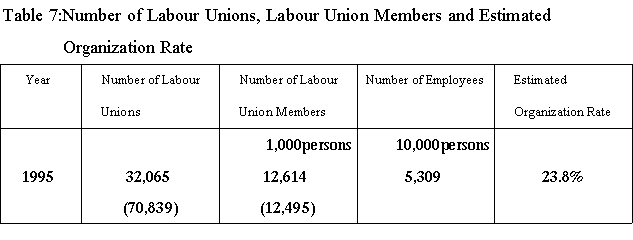II. Information on Individual Articles of The Covenant
Article 20
Regarding Paragraph 1 of this Article, a very strong negative feeling against war exists among the Japanese people and it is almost inconceivable that any propaganda for war could actually be carried out, as is stated in the Third Periodic Report. This situation has not changed. Thus, as is stated in the Third Periodic Report, should there emerge a danger of a harmful effect of propaganda in future, legislative measures would be studied, as the occasion demands, with careful consideration for freedom of expression.
Regarding Paragraph 2 of this Article, as is stated in the Third Periodic Report, should there arise in the future actual adverse effects, which could not be regulated under the existing legislation, further legislative measures would be studied, with careful consideration for freedom of expression to the extent that public welfare is protected.
Also, as stated in the report on Article 2, Japan has ratified in December 1995 the " International Convention on the Elimination of All Forms of Racial Discrimination" . However, regarding Article 4 of the Convention, which requires punishment as an obligation against " all dissemination of ideas based on racial superiority or hatred" and " incitement of racial discrimination" , Japan reserved that she fulfills the obligations (a) and (b) of Article 4 to the extent that the fulfillment of the obligations is compatible with the guarantee of the rights to freedom of assembly, association, and expression and other rights under the Constitution, taking into account of those importance.
Article 21
As is stated in the Third Periodic Report, the right stipulated in Article 21 of the Covenant is guaranteed under Article 21, Paragraph 1, of the Constitution. Restrictions on this right (those are under Article 5 of the " Subversive Activities Prevention Law" and Article 19, Paragraph 1, item 3, of the " Infectious Disease Prevention Law" ) are limited to the necessary minimum and are in conformity with the provisions of this Article.
Article 22
Legal Framework
As is stated in the Third Periodic Report, the rights stipulated in this Article are guaranteed under the related domestic laws and ordinances. Japan furthermore ratified related ILO conventions and is faithfully adhering to them.
Trade Unions
(a) Outline
Aiming in particular to " elevate the status of workers by promoting their being on equal standing with their employer in their bargaining with the employer" , the Trade Union Law provides " to protect the exercise by workers of autonomous self-organization and association in trade unions so that they may carry out collective action including the designation of representatives of their own choosing to negotiate working conditions" , and " to encourage the practice of collective bargaining, and procedures therefore, for the purpose of concluding collective agreements governing relations between employers and workers" (Trade Union Law, Article 1 Paragraph 1).
The law also prohibits, as unfair labour practices, the treatment of an employer in a disadvantageous manner a member of a trade union, the refusal of an employer to bargain collectively without proper reasons, and control on or interference with a trade union by an employer (Article 7). To offer remedy from unfair labour practices, Labour Relations Commissions shall be established (as independent administrative commissions), consisting of persons representing employers, persons representing workers and persons representing the public interest.
(b) Number of Labour Unions and Rate of Organization
The number of labour unions (local labour unions) in Japan stood at 70,839 in 1995 and the number of labour union members (individual labour unions) at 12,614,000 persons. The rate of labour union members to all employees is estimated at 23,8% (Table 7 refers).
(c) Remedy by Labour Relations Commission
Workers or trade unions may complain a Labour Relations Commission for remedy from unfair labour practices by their employers. When the Labour Relations Commission, following examination, judges the complaint to have due reason, it issues its order to the employer concerned to desist.
A system of procedures for seeking remedy from unfair labour practices through the Labour Relations Commission was established in order to further promote the protection of workers in addition to judicial means of redress and as a way to enable workers and trade unions a way to demand remedy.
 |
| Based on the Ministry of Labour's " Basic Survey on Labour Unions" (as of June 30, 1995) | |
| Notes: (1) | Number of labour unions and labour union members based on individual labour unions. Figures in parentheses ( ) based on local labour unions. |
| (2) | Number of employees based on " Labour Force Survey" compiled in June 1995 by Statistics Bureau of the Management and Coordination Agency . |
Applying the " Subversive Activities Prevention Law" to Religious Groups
The Director-General of the Public Security Investigation Agency, acting under the " Subversive Activities Prevention Law" , petitioned in July 1996 the Public Security Examination Commission to issue a directive for the dissolution of a religious group with the name of " Aum Supreme Truth" .
An order of dissolution is carried out when the condition for the order to disband, as stipulated in the above law, is satisfied. The condition is that a group which has conducted " terrorist subversive activities" has potential danger, as in found apparently, to carry out " terrorist subversive activities" as its own activities in future, either intermittently or repeatedly. An order of dissolution is " a restriction, which is prescribed by law and which is necessary in a democratic society in the interest of public security, the protection of the rights and freedom of others," described under the Articles 18 and 22 of this Covenant.
(The Commission dismissed the petition in January 1997 due to the lack of a sufficient proof that the group would present a serious threat in the foreseeable future.)
Back to Index
